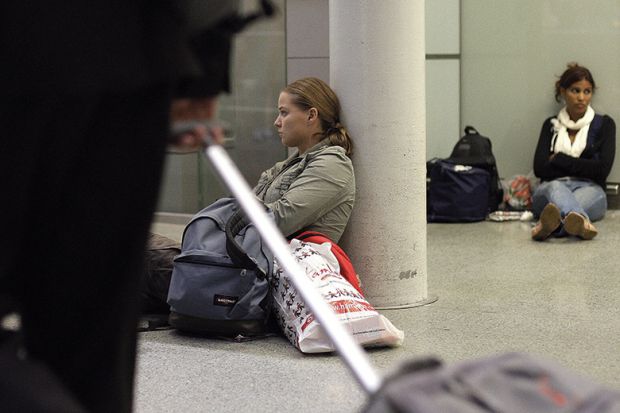Foreign academics employed by UK universities could be jeopardising their chances of remaining in the country if they spend significant periods of time researching abroad.
That is the stark warning for higher education institutions after a US-born academic spent more than a year fighting to be granted indefinite leave to remain in the UK.
Writing in this week’s issue of Times Higher Education, Emily Michelson, senior lecturer in history at the University of St Andrews, recounts how the Home Office initially refused her application to settle in the UK on the grounds that she had spent a year on a fellowship in Italy – despite the fact that this experience was deemed a necessary part of her job by the university.
Following a 14-month battle, Dr Michelson, a cultural and religious historian of early modern Italy, was granted indefinite leave to remain, but the Home Office “refused to concede the principle”, she says.
“They granted me indefinite leave to remain only as an exception, they said. Under no circumstances would they ever have counted my sojourn in Italy as a continuous part of my employment,” she writes. “And I’ve heard of far worse cases than mine among similar scholars, some of whom have had to reapply for their own jobs, wait a year outside the country or give up their UK careers entirely.”
Under a Tier 2 visa, foreign academics can live in the UK for a maximum of six years, and must be granted indefinite leave to remain to settle in the country permanently.
Home Office policy states that indefinite leave to remain cannot be granted if applicants have spent more than 180 days per year abroad, unless there are “serious or compelling reasons”. Absences for “employment or economic activity reasons are not considered exceptional” under the policy.
These laws may affect academics from the European Union after Brexit.
Sophie Barrett-Brown, senior partner and head of UK practice at Laura Devine Solicitors, which specialises in immigration law, said it was a “really unfortunate policy” and “our view [is] that there should be greater scope for exercising discretion”.
Although conducting research abroad “enriches [academics’] contribution to the UK” and it is “a typical part of how they need to operate”, universities must be “mindful” of this policy when “making decisions around how their academic staff are going to operate”, Ms Barrett-Brown added.
A Home Office spokesman said: “There are no continuous residency rules for those applying for limited leave to remain as a Tier 2 migrant – the typical route used by skilled foreign workers such as academics who come to the UK to work and then return home.
“However, Dr Michelson applied for indefinite leave to remain as a Tier 2 migrant and the rules clearly state that applicants are required to live continuously in the UK for five years. Her application was initially refused due to this reason, but leave was granted following a fresh application that contained further representations.”




